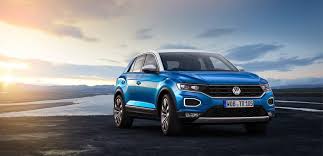Volkswagen’s journey is a testament to the company’s ability to adapt and evolve in an ever-changing global market. From its humble beginnings to its current status as a global automotive leader, Volkswagen has consistently demonstrated its commitment to innovation, quality, and sustainability.
Early Years and Strategic Shift
In the 1990s, Volkswagen underwent a significant strategic shift, focusing on product diversity, productivity, and profitability. The company implemented lean production principles, characterized by flat hierarchies, team working, and logistical networking with suppliers. This approach enabled Volkswagen to streamline its processes, improve productivity, and reduce costs.

Key Milestones
Volkswagen’s history is marked by several key milestones that have shaped the company’s trajectory. Some notable events include:
- Globalization (1992–1995):
Volkswagen initiated a globalization process, establishing efficient production facilities worldwide. The company built new factories in Mosel, Germany, and Martorell, Spain, and expanded its presence in China through joint ventures. - Four-Day Workweek (1994):
Volkswagen introduced the four-day workweek, reducing the workweek from 36 to 28.8 hours, to manage excess manpower and cut costs. - Luxury Brand Acquisitions (1998):
Volkswagen acquired luxury brands Bentley, Lamborghini, and Bugatti, expanding its product offerings in the luxury segment. - Global Expansion (2000s):
Volkswagen continued to globalize, establishing production plants in Russia, India, and China, and strengthening its market position in emerging markets.
Modernization Efforts
Volkswagen’s modernization efforts have been focused on improving productivity, reducing costs, and enhancing sustainability. Some key initiatives include:
- Lean Production:
Volkswagen has adopted lean production principles, streamlining processes, and improving productivity. - Global Platform Strategy:
The company has implemented a global platform strategy, sharing platforms across brands and models to reduce development and production costs. - E-Mobility and Sustainability:
Volkswagen has invested heavily in electric mobility and sustainability initiatives, aiming to become a leader in the electric vehicle market.

International Statistics
Volkswagen’s global presence is reflected in its impressive international statistics. Some notable figures include:
- Global Sales:
Volkswagen Group sold over 4.9 million vehicles worldwide in 1999, with a market share of 12% in the global passenger car market. - Production:
The company produced over 4.2 million vehicles in 1997, with 62.3% of production coming from plants outside Germany. - Workforce:
Volkswagen had a workforce of over 31,000 employees in Brazil alone in 1997, with a global workforce of hundreds of thousands.
Recent Developments
Volkswagen continues to innovate and adapt to changing market trends. Some recent developments include:
- Electric Mobility:
Volkswagen has announced plans to launch 70 new electric models by 2029, investing heavily in battery technology and production. - Digitalization:
The company is investing in digitization initiatives, including autonomous driving, connectivity, and mobility services.
Conclusion
In conclusion, Volkswagen’s history and modernization efforts demonstrate the company’s commitment to innovation, quality, and sustainability. As the automotive industry continues to evolve, Volkswagen is well-positioned to remain a leader in the global market.









